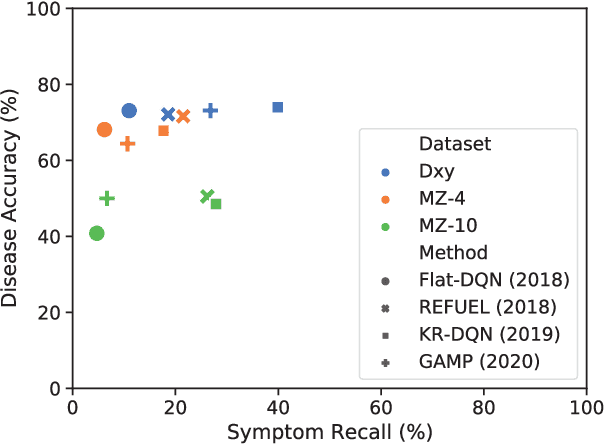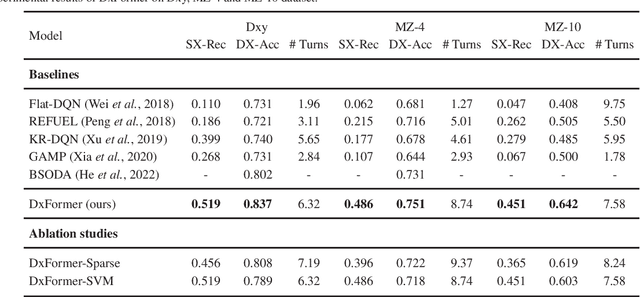DxFormer: A Decoupled Automatic Diagnostic System Based on Decoder-Encoder Transformer with Dense Symptom Representations
Paper and Code
May 08, 2022



Diagnosis-oriented dialogue system queries the patient's health condition and makes predictions about possible diseases through continuous interaction with the patient. A few studies use reinforcement learning (RL) to learn the optimal policy from the joint action space of symptoms and diseases. However, existing RL (or Non-RL) methods cannot achieve sufficiently good prediction accuracy, still far from its upper limit. To address the problem, we propose a decoupled automatic diagnostic framework DxFormer, which divides the diagnosis process into two steps: symptom inquiry and disease diagnosis, where the transition from symptom inquiry to disease diagnosis is explicitly determined by the stopping criteria. In DxFormer, we treat each symptom as a token, and formalize the symptom inquiry and disease diagnosis to a language generation model and a sequence classification model respectively. We use the inverted version of Transformer, i.e., the decoder-encoder structure, to learn the representation of symptoms by jointly optimizing the reinforce reward and cross entropy loss. Extensive experiments on three public real-world datasets prove that our proposed model can effectively learn doctors' clinical experience and achieve the state-of-the-art results in terms of symptom recall and diagnostic accuracy.
 Add to Chrome
Add to Chrome Add to Firefox
Add to Firefox Add to Edge
Add to Edge